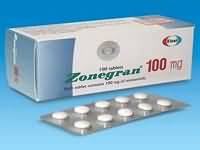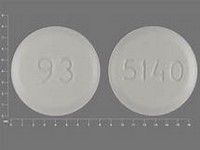Zonisamide

CLINICAL USE
Anti-epilepticDOSE IN NORMAL RENAL FUNCTION
Initially: 25 mg twice daily, increasing to maintenance dose of 300–500 mg daily in 1 or 2 divided dosesPHARMACOKINETICS
DOSE IN RENAL IMPAIRMENT
GFR (mL/MIN)
DOSE IN PATIENTS UNDERGOING RENAL REPLACEMENT THERAPIES
IMPORTANT DRUG INTERACTIONS
Potentially hazardous interactions with other drugsADMINISTRATION
Reconstition
–Route
OralRate of Administration
–Comments
–OTHER INFORMATION
AUC is increased by 35% in patients with a GFR<20 mL/min Increase dose at 2 weekly intervals in people with renal impairment and monitor more frequently .
See how to identify renal failure stages according to GFR calculation
See how to diagnose irreversible renal disease
Home








